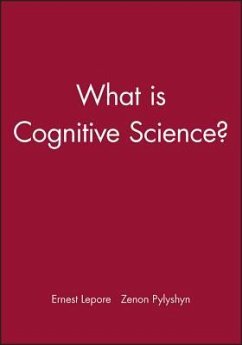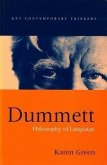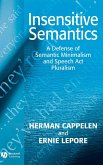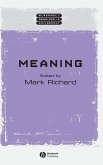Cognitive science is one of the few fields where modern developments in computer science and artificial intelligence promise to shed light on classical problems in psychology and the philosophy of the mind. Ancient questions of how we see the world, understand language, and reason - and even such exotic questions as how a material system can know about the outside world - are being explored with the powerful new conceptual prosthetics of computer modeling. We may, for the first time, be in a position to attempt an integrated theory of cognition based on ideas about cognitive architecture. Thus cognitive science offers the promise of bringing together modern conceptual tools and classical problems in a powerful new scholarly synthesis. Written by an assembly of leading researchers in the field, this volume provides an innovative and non-technical introduction to cognitive science, and the key issues that animate the field. It explores subject areas such as Mind, Vision, Language, and Neuroscience, and contains selections on the foundations of cognitive science, cognition development, reasoning, object recognition, eye movements, visual recognition, language processing and acquisition, optimality theory, and neuroscience. Students who are beginning their exploration of cognitive science will find both pedagogical tutorial essays to orient them to this exciting field, as well as more technical material, to provide a sense of how cognitive science is actually practised, at the state of the art.
"Many of the authors are major academic figures (e.g., Fodor,Pylyshyn, Stich), and all are authoritative in their fields. Thebook, taken as a whole, conveys some of the excitement going ontoday in cognitive science. Recommended." C. Koch, Choice
"Having been based on a lecture series that brought togethersome of the most innovative research in the field, this collectionwill work superbly as an introductory text. Aimed at a diverseaudience, the issues are given a systematic presentation withtechnical concepts introduced both gradually and precisely. Leporeand Pylyshyn's edition serves as a quite complete and provocativepath of entry into the science of the mind." David Kilfoyle,York University, Canada
"An excellent collection of chapters by very talentedinvestigators who truly understand the mission of cognitivescience." -- Rochel Gelman, RutgersUniversity
"Having been based on a lecture series that brought togethersome of the most innovative research in the field, this collectionwill work superbly as an introductory text. Aimed at a diverseaudience, the issues are given a systematic presentation withtechnical concepts introduced both gradually and precisely. Leporeand Pylyshyn's edition serves as a quite complete and provocativepath of entry into the science of the mind." David Kilfoyle,York University, Canada
"An excellent collection of chapters by very talentedinvestigators who truly understand the mission of cognitivescience." -- Rochel Gelman, RutgersUniversity








